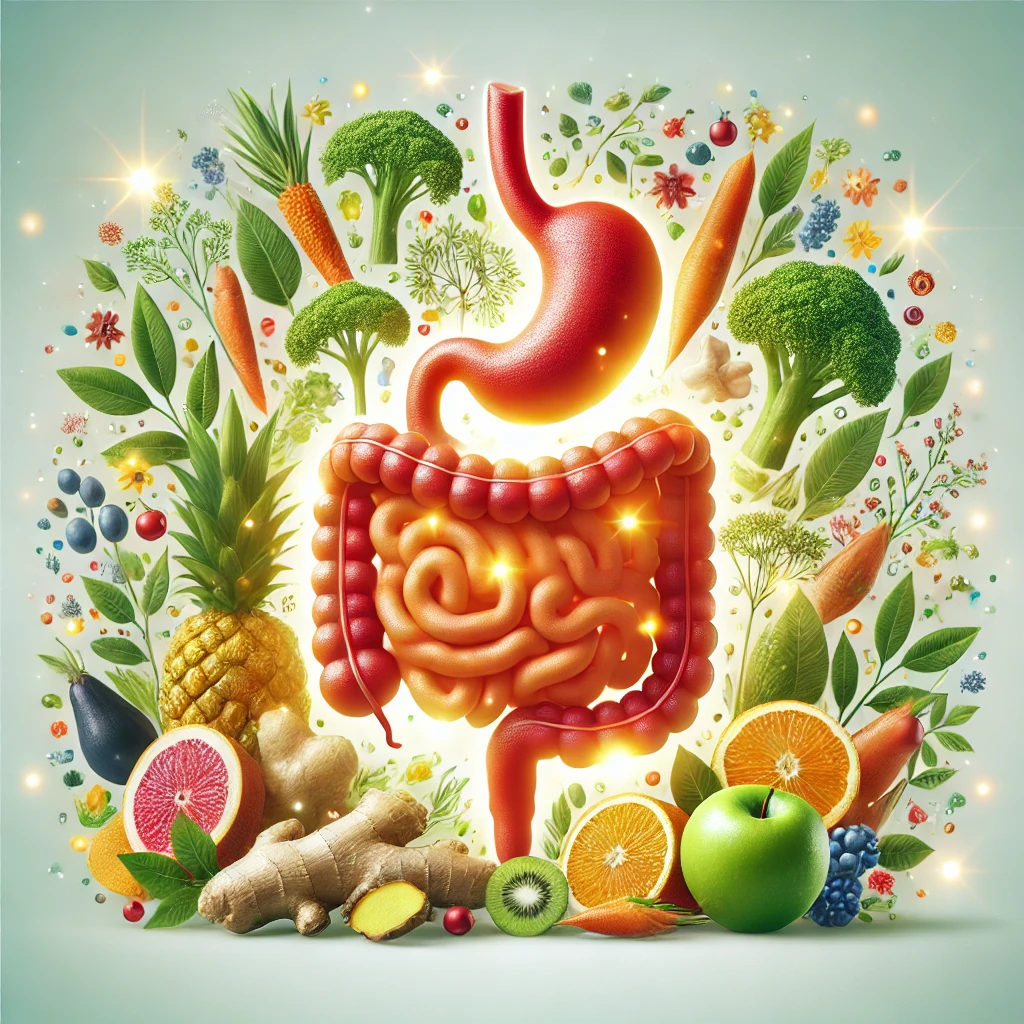
How to Improve Gut Health Without Probiotics: 10 Natural Strategies
Created on 10 March, 2025 • Health and Wellness • 155 views • 2 minutes read
Discover how to improve gut health without probiotics using natural, science-backed strategies for better digestion and overall well-being.
Table of Contents
| Section Subtopics | |
| Introduction | Importance of gut health, probiotic alternatives |
| Understanding Gut Health | Role of gut microbiome, impact on overall health |
| Diet and Gut Health | Fiber-rich foods, prebiotic foods, hydration |
| Hydration and Gut Function | Benefits of water, avoiding dehydration |
| Exercise and Digestion | How movement aids digestion |
| Stress Management | Effects of stress on gut health, relaxation techniques |
| Sleep and Gut Health | Importance of sleep, tips for better rest |
| Herbs and Natural Remedies | Ginger, turmeric, and other gut-friendly herbs |
| Reducing Processed Foods and Sugar | Impact on gut flora, alternatives |
| Intermittent Fasting and Gut Health | Benefits of fasting on microbiome |
| Fermented Foods as an Alternative | Yogurt, kimchi, and natural probiotic sources |
| Detoxifying Your Gut Naturally | Fiber, hydration, and toxin removal |
| Mindful Eating Habits | Chewing well, eating slowly |
| FAQs | Answers to common gut health questions |
| Conclusion | Final thoughts and recommendations |
Introduction
Gut health plays a vital role in digestion, immunity, and mental well-being. While probiotics are often recommended, they aren’t the only way to maintain a healthy gut. This article explores natural and effective methods to support your gut health without relying on probiotic supplements.
Understanding Gut Health
The gut microbiome consists of trillions of bacteria, fungi, and viruses that influence digestion, metabolism, and immunity. A balanced gut microbiome can prevent digestive issues, boost immunity, and improve mood.
Diet and Gut Health
1. Eat More Fiber-Rich Foods
Fiber acts as food for good gut bacteria. Foods rich in fiber include:
- Whole grains (oats, brown rice, quinoa)
- Fruits (apples, bananas, berries)
- Vegetables (broccoli, carrots, leafy greens)
2. Consume Prebiotic Foods
Prebiotics are compounds that feed beneficial gut bacteria. Some great sources include:
- Garlic
- Onions
- Asparagus
- Chicory root
3. Stay Hydrated
Water aids digestion and prevents constipation. Aim for 8-10 glasses per day.
Exercise and Gut Function
Regular physical activity promotes gut motility and enhances microbial diversity. Activities like walking, yoga, and strength training can significantly benefit gut health.
Stress Management
Chronic stress negatively impacts gut health. Effective ways to reduce stress include:
- Meditation and deep breathing
- Yoga
- Spending time in nature
Sleep and Gut Health
Lack of sleep can disrupt gut bacteria. Ensure 7-9 hours of quality sleep by:
- Maintaining a consistent sleep schedule
- Reducing screen time before bed
- Practicing relaxation techniques
Herbs and Natural Remedies
Certain herbs promote digestion and gut health, including:
- Ginger – Reduces inflammation and aids digestion
- Turmeric – Has anti-inflammatory properties
- Peppermint – Helps with bloating and discomfort
Reducing Processed Foods and Sugar
Excess sugar and processed foods can harm gut bacteria. Swap these with:
- Natural sweeteners like honey or dates
- Whole, unprocessed foods
Intermittent Fasting and Gut Health
Intermittent fasting can:
- Improve gut microbiome diversity
- Enhance digestion and metabolism
- Reduce inflammation
Fermented Foods as an Alternative
Even without probiotic supplements, fermented foods naturally contain beneficial bacteria:
- Kimchi
- Sauerkraut
- Miso
Detoxifying Your Gut Naturally
To remove toxins and maintain gut health:
- Increase fiber intake
- Stay hydrated
- Consume detoxifying herbs like dandelion root
Mindful Eating Habits
Proper eating habits aid digestion. Practice:
- Chewing food thoroughly
- Eating slowly
- Avoiding overeating
Ready to improve your health ? Click here to and experience the difference today!
FAQs
1. Can gut health improve without probiotics?
Yes! A fiber-rich diet, hydration, and healthy lifestyle choices can support gut health naturally.
2. What foods naturally support gut bacteria?
Prebiotic foods like garlic, onions, and whole grains feed good gut bacteria.
3. How does stress impact gut health?
Stress disrupts the gut microbiome and can lead to digestive issues. Managing stress through relaxation techniques is beneficial.
4. Can exercise help with digestion?
Yes, regular movement aids digestion by promoting bowel motility and reducing bloating.
5. What is the best way to detox the gut?
Eating fiber-rich foods, drinking water, and avoiding processed foods help detoxify the gut naturally.
6. How long does it take to improve gut health?
It varies, but noticeable changes can occur in as little as a few weeks with consistent healthy habits.